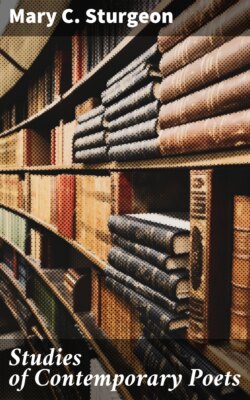Читать книгу Studies of Contemporary Poets - Mary C. Sturgeon - Страница 4
На сайте Литреса книга снята с продажи.
Rupert Brooke
ОглавлениеTable of Contents
Born at Rugby on August 3, 1887; Died at Lemnos an April 23, 1915
Probably most English people who love their country and their country's greatest poet have at some time taken joy to identify the spirit of the two. England and Shakespeare: the names have leapt together and flamed into union before the eyes of many a youngster who was much too dazzled by the glory to see how and whence it came. But returning from a festival performance on some soft April midnight, or leaning out of the bedroom window to share with the stars and the wind the exaltation which the play had evoked, the revelation suddenly shone. And thenceforward April 23 was by something more than a coincidence the day both of Shakespeare and St George.
Reason might come back with the daylight to rule over fancy; and the cool lapse of time might remove the moment far enough to betray the humour of it. But the glow never quite faded; or if it did it only gave place to the steadier and clearer light of conviction. One came to see how the poet, by reason of his complete humanity, stood for mankind; and how, from certain sharp characteristics of our race, he stood pre-eminently for English folk. And coming thence to the narrower but firmer ground of historical fact, one saw how shiningly he represented the Elizabethan Age, with its eager, inquisitive, and adventurous spirit; its craving to fulfil to the uttermost a gift of glorious and abundant life.
Now precisely in that way, though not of course in the same superlative degree, one may see Rupert Brooke standing for the England of his time. And when this poet died at Lemnos on April 23, 1915, those who knew and loved his work must have felt the tragic fitness of the date with the event. If the gods of war had decreed his death, they had at least granted that he might pass on England's day. In him indeed was manifested the poetic spirit of the race, warm with human passion and sane with laughter: soaring on wings of fire but nesting always on the good earth. And though one does not claim to find in him the highest point or the extremest advance to which the thought of his day had gone, he stands pre-eminently for that day in the steel-clear light of his gallant spirit.
The title of Rupert Brooke's posthumous book—1914—signifies that moment of English history which is reflected in his work. He is the symbol of that year in a double sense. He represents the calamitous political event of it in his voluntary service to the State, and the manner of his death. Thus by the accident of circumstance which made him eminent and vocal, he serves to speak for the silent millions of English men and women who splendidly sprang to duty. But in his poetry there is a closer and deeper relation to that tragic year. Incomplete as it may be: youthful and prankish as some of it is, the thought and manner of the time are imaged there. A certain level of humane culture had been reached, a certain philosophy of life had been evolved, and a definite attitude to reality taken. Lightly but clearly, these things which reflect the colour of our civilization at August 1914 are crystallized in Rupert Brooke's poetry to that date. But at that point the image, like the whole order of which it was the reflection, was shattered by the crash of arms; and the few poems which he wrote subsequently are preoccupied with the spiritual crisis which the war precipitated.
Most of the admirers of this poet have seen only in his last pieces the singular identity of his spirit with the spirit of his country. And that is so noble a concord that it cannot be missed. For when England plunged into the greatest war of history, she flung off in the act several centuries of her age. Priceless things, slowly and patiently acquired, went overboard as mere impedimenta; but in the relapse, the slipping backward to an earlier time and consequent recovery of youth, with its ardour and passion, its recklessness and generosity and courage, the optimist saw a reward for all that was lost. So with the poetry of Rupert Brooke. Those few last sonnets, as it were the soul of rejuvenated England, seem to the same hopeful eye a complete compensation, not only for the wasted individual life, but for the beauty and significance of the age for which he stood, now irrevocably lost.
